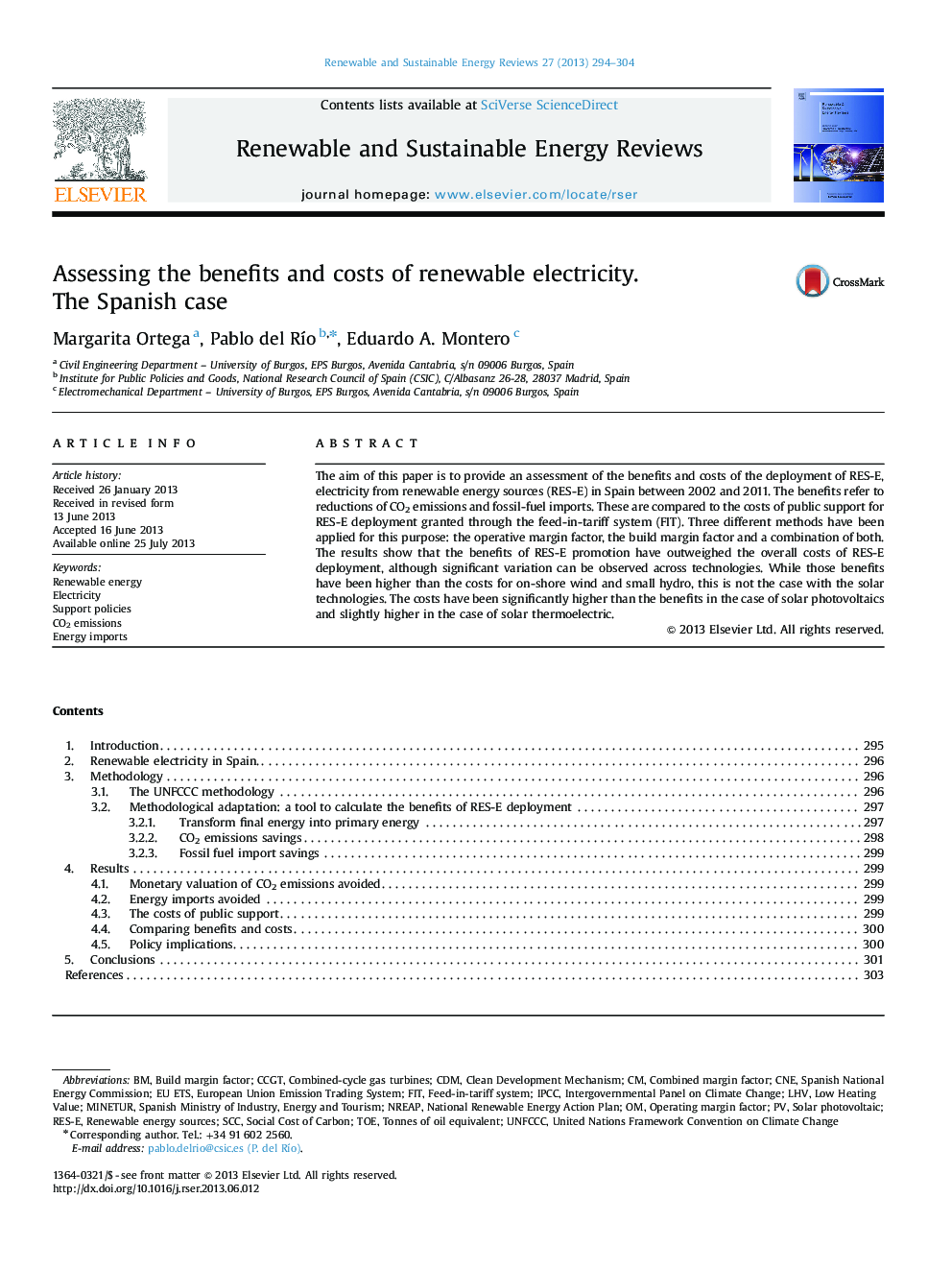| Article ID | Journal | Published Year | Pages | File Type |
|---|---|---|---|---|
| 8121304 | Renewable and Sustainable Energy Reviews | 2013 | 11 Pages |
Abstract
The aim of this paper is to provide an assessment of the benefits and costs of the deployment of RES-E, electricity from renewable energy sources (RES-E) in Spain between 2002 and 2011. The benefits refer to reductions of CO2 emissions and fossil-fuel imports. These are compared to the costs of public support for RES-E deployment granted through the feed-in-tariff system (FIT). Three different methods have been applied for this purpose: the operative margin factor, the build margin factor and a combination of both. The results show that the benefits of RES-E promotion have outweighed the overall costs of RES-E deployment, although significant variation can be observed across technologies. While those benefits have been higher than the costs for on-shore wind and small hydro, this is not the case with the solar technologies. The costs have been significantly higher than the benefits in the case of solar photovoltaics and slightly higher in the case of solar thermoelectric.
Keywords
NREAPCNESCCRES-EEnergy importsLHVIPCCCCGTCDMUNFCCCTOEElectricityCO2 emissionsRenewable energyEU ETSnational renewable energy action planSupport policiesSolar photovoltaicLow heating valueRenewable energy sourcesFITClean Development MechanismSocial cost of carbonIntergovernmental Panel on Climate ChangeUnited nations framework convention on climate change
Related Topics
Physical Sciences and Engineering
Energy
Renewable Energy, Sustainability and the Environment
Authors
Margarita Ortega, Pablo del RÃo, Eduardo A. Montero,
